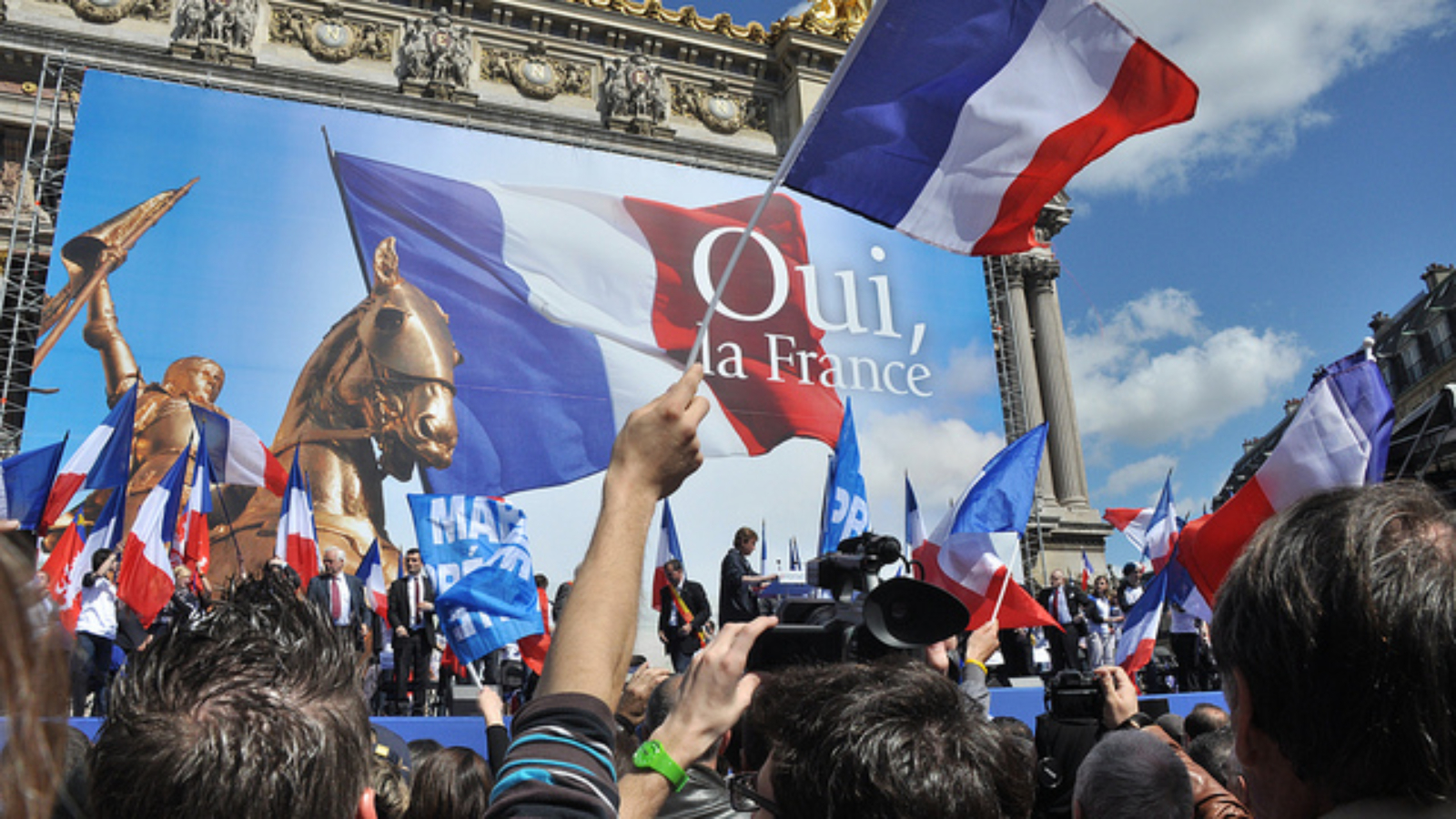By Sophie des Beauvais
The National Front’s (FN) emergence as a major political force has dealt France an abrupt blow. The far-right party’s electoral successes mean the country can no longer deny the FN’s popularity. But how did such a far right party win over the hearts and minds of French citizens?
The National Front promotes an unabashedly nationalist, populist, Islamophobic, xenophobic, and Euroskeptic ideology. And it is not alone. All over Europe, similar parties have gained momentum, from Heinz-Christian Strache’s FPÖ (Freedom Party of Austria) and Geert Wilders’ PVV (Dutch Party for Freedom) to Greece’s newly-elected left wing Syriza coalition. Like their counterparts, the National Front’s ideology rests on a utopia of a homogeneous population, once drained of its “foreign components,” particularly Roma and Muslims. Their other distinctive feature is that they condemn Brussels’ bureaucracy and the loss of national sovereignty that resulted from European integration.
Indeed, according to Vincent Martigny, lecturer at the Ecole Polytechnique, historical references to examine the National Front are less relevant than a contemporary comparative analysis. To Martigny, comparisons between the Front National ideology and the writings of Charles Maurras and Maurice Barrès, who theorized French nationalism at the end of the 19th century, or even the Vichy regime, are irrelevant. Accusations of strong anti-Semitism and allusions to the 1930s’ political environment are also misguided.
“Jean-Marie Le Pen, the party’s inaugural leader, surely read Maurras and Barrès, but Marine Le Pen main concern clearly appears to be Muslims and immigrants,” said Martigny. In this sense, the FPÖ, PVV, Syriza, the FN, and others represent a general European trend fueled by fear of decline combined with defiance toward immigrants and “the other,” the European Union, and traditional Elites.

The National Front’s success lies in its deployment of apparently democratic strategies. “Though aspects of its original ideology remain, FN leaders use democratic rhetoric to change their party’s appearance,” Paula Diehl, professor at the Humboldt University of Berlin told World Policy Journal. A similar trend can be observed in other European far-right parties.
The FN fight for native-born French to claim the existence of their own distinct identity, perceived in opposition to all the others existing country.
The reality is that such a native-born French identity, homogenous and consistent, does not exist. Unlike Germany or Saudi Arabia for instance, France has always been a divided country, historically composed of many potentially contentious identities that have been threatening to secede for centuries. Although united in one nation, tensions over what that unity means are constant, yet prove there is not one single homogeneous French identity.
While the National Front’s designs on the Elysée Palace are clear, the party’s ideology remains obscure. On Tuesday, January 21, Marine Le Pen surprisingly condemned a video filmed by MEP Aymeric Chauprade in Strasbourg, wherein he claimed that “Islam poses a very serious threat to France in the future,” adding that “the roots of violence and totalitarianism are in Islam, even in it sacred texts.”

Indeed, the National Front’s ambiguity is well maintained by its leaders. According to CEVIPOF associate researcher Alain Policar, “It is a national-populist party, strongly identitarian, based on on the denunciation of cosmopolitan elites — meaning Jewish. Moreover, there is discord within the party between the North—more working class, who is more sensitive to Marine Le Pen’s social rhetoric—and the South, who follow the FN chief’s father, Jean-Marie Le Pen, and her niece, Marion Maréchal-Le Pen. The latter insist on the fear of immigration and border control.” The party largely maintains this ambiguity to rally both groups under the same flag.
Etienne Schweisguth and Gérard Grunberg, two researchers at CEVIPOF, demonstrated in a 2007 study titled, Le libéralisme culturel aujourd’hui, that ‘cultural liberalism’—defined as a group of hedonist and anti-authoritarian attitudes—has been evolving recently. Although there is more tolerance regarding private choices, the public space is narrowing. A complex dynamic exists between personal liberty, where an individuation of cultural references and habits can be noticed, and public order where the party plays on insecurity and external threats to rally people to its cause.
According to Vincent Martigny, this trend is intensifying and is based on persistent unresolved issues in French history. “Over the last thirty years, the country left a number of questions and paradoxes unanswered: the post-colonial question, the tension between universal values and supposed cultural majority, tensions concerning the end of the grandeur, fear of decline, and women’s and minorities’ rights. With the National Front opening Pandora’s box, all these issues are resurfacing, which also means the answer that will emerge from this attempt to break taboos is still unknown.”
In a few words, the National Front and its sympathizers are no more than what Philippe Solers called in 1999 the ‘moldy France’: “The moldy France has always hated, pell-mell, the Germans, the English, the Jews, the Arabs, foreigners in general, modern art, hair splitter intellectuals, women who think or are too independent, unsupervised workers and ultimately, freedom in all its forms.”
Thus, the National Front is simply the outcome of the long-retained traumas and paradoxes of the French society. However, more than a national exception, Le Pen’s party is representative of a broader European trend. Everywhere, fear of the future and the unknown bolster a not-so-knew kind of populism. For the last 100 years, European civilization constantly feared decline. Now, once again, Europe is turning inward, fostering its own downfall and tragically tearing itself apart.
*****
*****
Sophie des Beauvais is an editorial assistant at World Policy Journal.
[Photo courtesy of Blandine le Cain and MLP Flickr]
